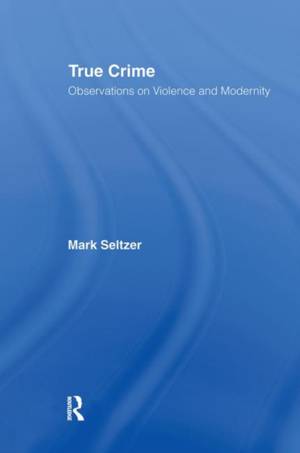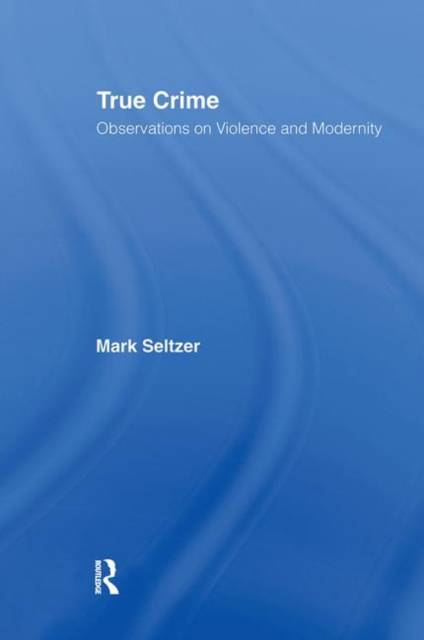
- Retrait gratuit dans votre magasin Club
- 7.000.000 titres dans notre catalogue
- Payer en toute sécurité
- Toujours un magasin près de chez vous
- Retrait gratuit dans votre magasin Club
- 7.000.000 titres dans notre catalogue
- Payer en toute sécurité
- Toujours un magasin près de chez vous
Description
True crime is crime fact that looks like crime fiction. It is one of the most popular genres of our pathological public sphere, and an integral part of our contemporary wound culture-a culture, or at least cult, of commiseration. If we cannot gather in the face of anything other than crime, violence, terror, trauma, and the wound, we can at least commiserate. That is, as novelist Chuck Palahniuk writes, we can at least "all [be] miserable together." The "murder leisure industry," its media, and its public: these modern styles of violence and intimacy, sociality and belief, are the subjects of True Crime: Observations on Violence and Modernity.
True Crime draws on and makes available to American readers--and tests out--work on systems theory and media theory (for instance, the transformative work of Niklas Luhmann on social systems and of Friedrich Kittler on the media apriori--work yet to make its impact on the American scene). True Crime is at once a study of a minor genre that is a scale model of modern society and a critical introduction to these forms of social and media history and theory. With examples, factual and fictional, of the scene of the crime ranging from Poe to CSI, from the true crime writing of the popular Japanese author Haruki Murakami to versions of "the violence-media complex" in the work of the American novelist Patricia Highsmith and the Argentinian author Juan José Saer, True Crime is a penetrating look at modern violence and the modern media and the ties that bind them in contemporary life.
Spécifications
Parties prenantes
- Auteur(s) :
- Editeur:
Contenu
- Nombre de pages :
- 196
- Langue:
- Anglais
Caractéristiques
- EAN:
- 9780415977937
- Date de parution :
- 19-12-06
- Format:
- Livre relié
- Format numérique:
- Ongenaaid / garenloos gebonden
- Dimensions :
- 160 mm x 232 mm
- Poids :
- 390 g







